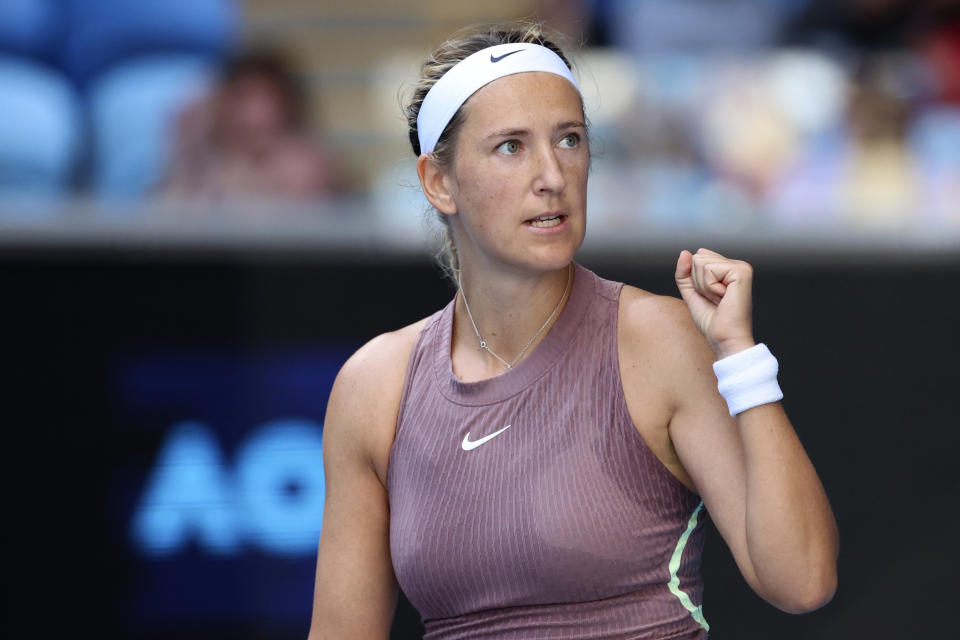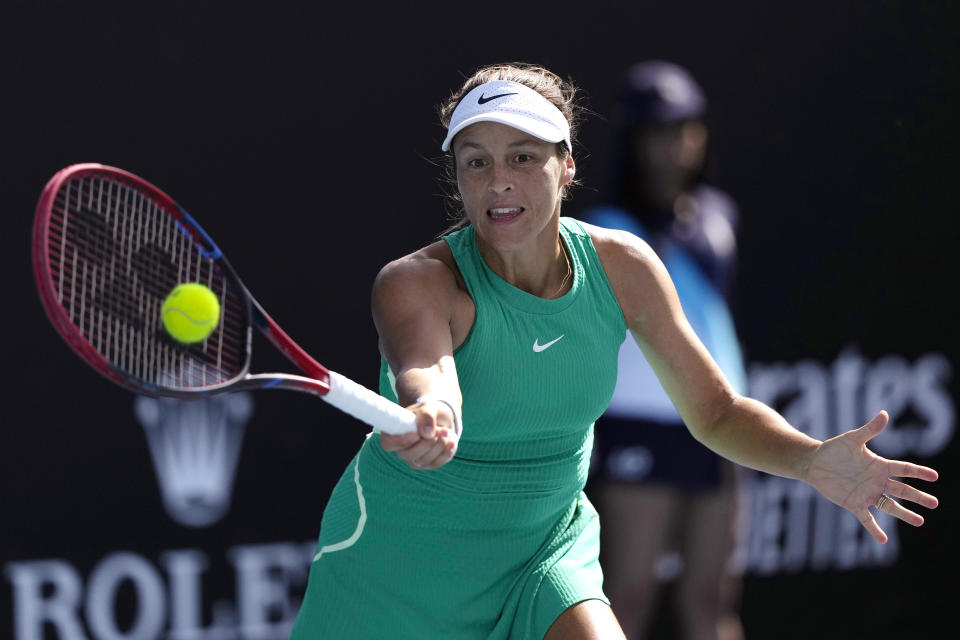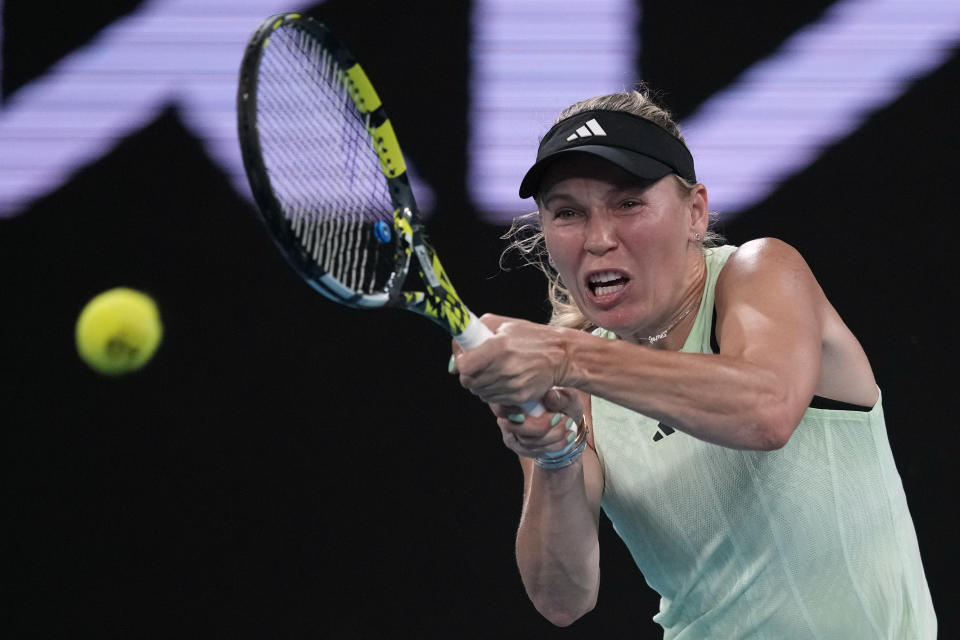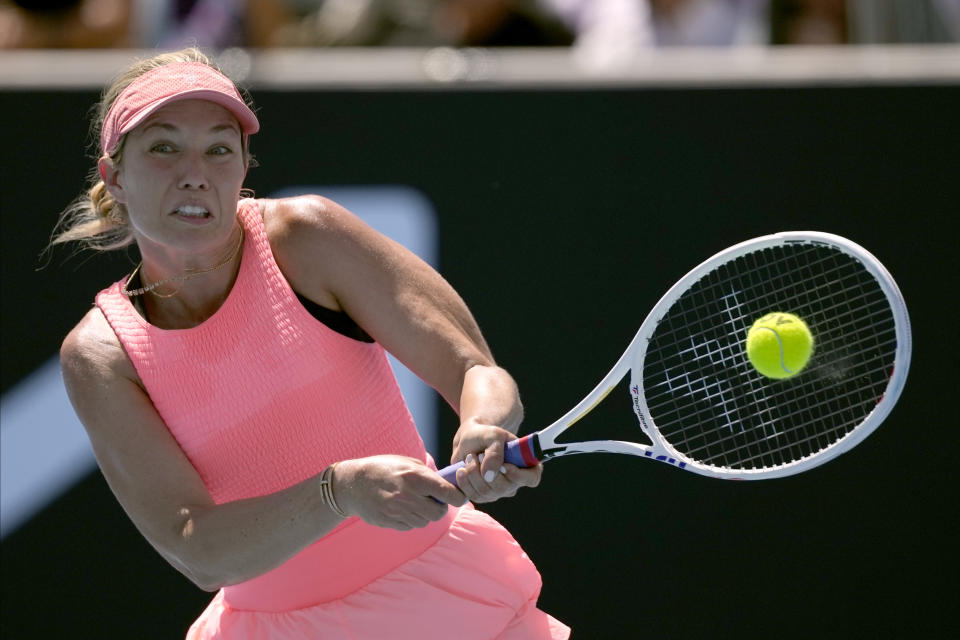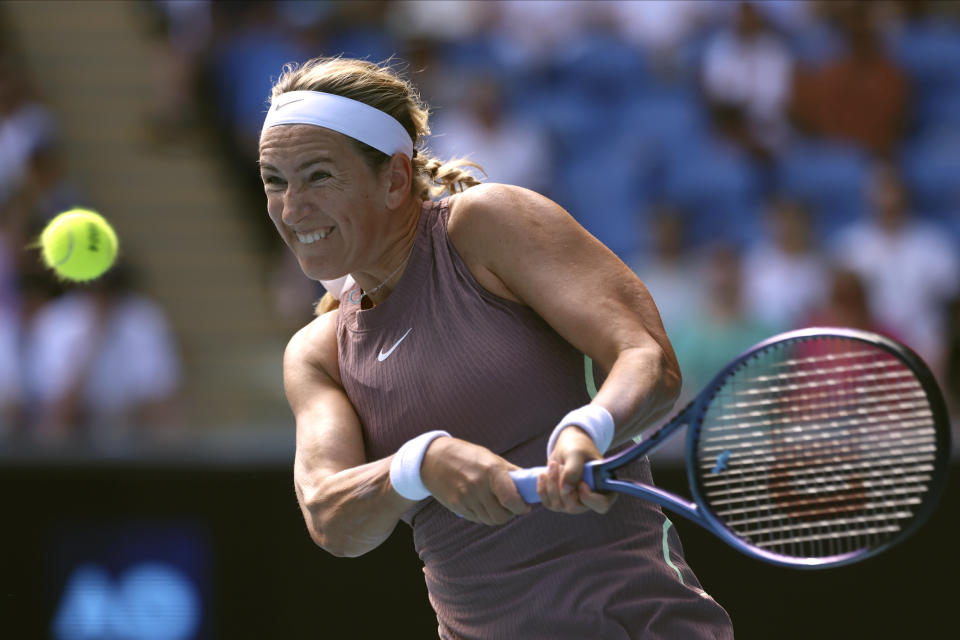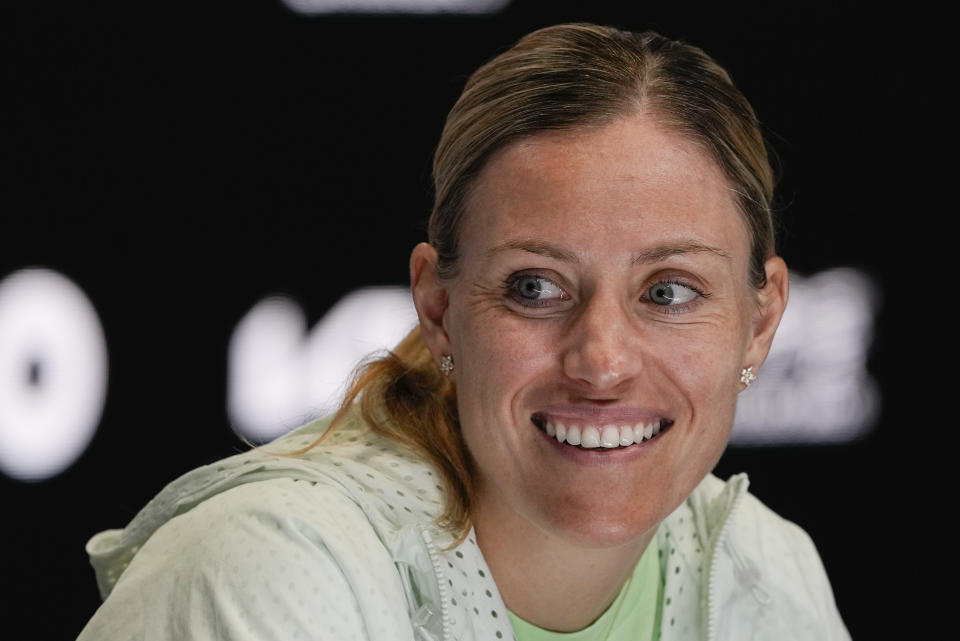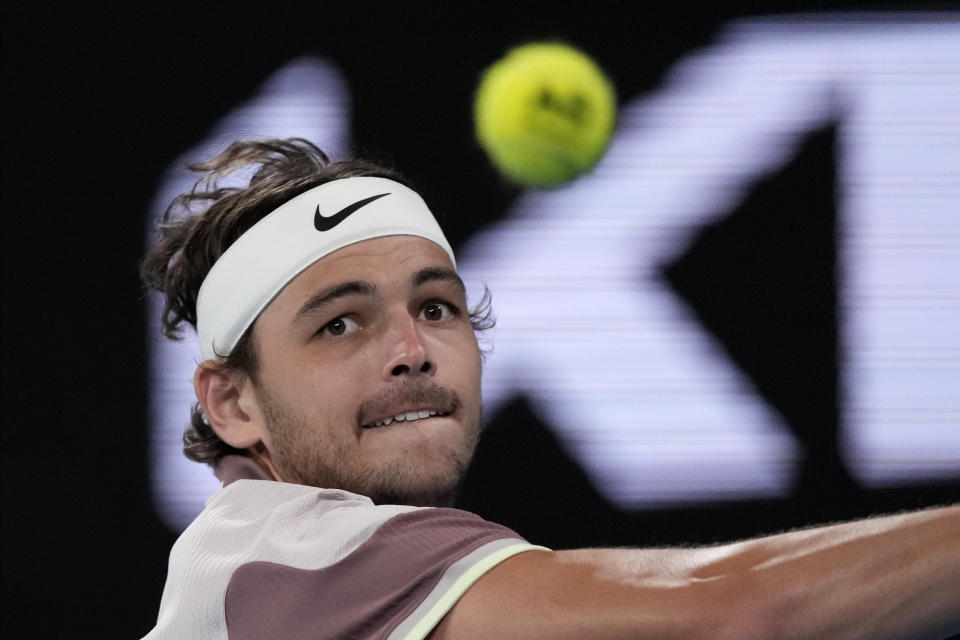Tennis parents say attitude the key for their sporty children
- Oops!Something went wrong.Please try again later.
- Oops!Something went wrong.Please try again later.
- Oops!Something went wrong.Please try again later.
- Oops!Something went wrong.Please try again later.
- Oops!Something went wrong.Please try again later.
MELBOURNE (AP) — If anyone wanted the secret to producing a sporting champion then you might think that having the DNA of sports-playing parents would be the key factor.
But while genetics play a big part, when it comes to some of the parents at this year’s Australian Open, what they are looking for in their children, most of all, is the right attitude.
“For me, what’s important is to give him (her seven-year-old son, Leo) opportunities and to try things in life,” Victoria Azarenka said. “My only rule with him is the effort is non-negotiable.
“If you try to do something, you give 100 percent effort. Result is something, he’s as competitive as I am, he’ll want to have result, but the effort is non-negotiable. If he commits to something, he’s there 100 percent.”
There were eight mothers in the draw for this year’s Australian Open, including Naomi Osaka, Caroline Wozniacki and Angelique Kerber.
All eight know what it takes to become a professional sportswoman, from the sacrifices they have to make to the sheer effort they need to put in.
For some tennis stars, the idea of their child following in their footsteps is too much. Andre Agassi and Steffi Graf were more than happy when their eldest son, Jaden, chose baseball instead of tennis. Others, like Lleyton Hewitt, whose son Cruz is playing in the junior event, actively encourage it.
Tatjana Maria, the German who reached the semifinals at Wimbledon in 2022, has two daughters. The eldest, 10-year-old Charlotte, plays tennis and golf.
Like Azarenka, Maria is focused on effort, rather than results.
“I think it’s super-important for kids to keep going, even if it doesn’t go well sometimes because I think sometimes you have a lot of kids, they start a sport, they don’t like it, they stop it, they start something else and at the end, nothing stays.
“It depends on the kids, if they like it, but from the beginning, it was clear: ‘OK, we keep going, doesn’t matter if sometimes you have a bad day, we still keep going’. I think we are a little bit like Victoria.”
Having a famous father or mother is no guarantee that their child will make it.
Taylor Fritz’s mother, Kathy May, was a top 10 player who reached the quarterfinals at both the U.S. Open and French Opens.
Fritz said his mum had been careful not to put too much pressure him.
“My mom was really, honestly, chill about all sports, and tennis included,” he said. “My dad was much more the one that was very trying his hardest to get me on the tennis court because I hated it so much when I was younger. He would do pretty much everything he possibly could to try and give me incentive to play.
“Obviously where I’m at now, I didn’t like it back then, but now I can appreciate the lengths he went to try to get me to play tennis. My mom was always very relaxed, kind of: ‘do what you want to do’. My dad was the one that got me on the court.”
Azarenka and Maria both stressed the importance of playing as many sports for as long as possible. Azarenka’s son plays ice hockey, soccer and golf, as well as tennis. “I think it helps them to develop, it helps the brain to develop, it teaches discipline, etcetera,” Azarenka said.
Maria’s eldest daughter Charlotte plays golf but she’s due to play her first national tennis event in April. The German said she has no problem if either of her daughters want to try to be professionals.
“Personally, I think it’s great, because I think it’s an amazing sport, tennis,” she said. “It’s amazing to be a professional tennis player. And personally, I see more good than bad stuff in it.”
Azarenka said she sits in ice rinks watching him play ice hockey early in the morning. She doesn’t like waiting in the cold, but appreciates the effort he puts in.
“I’m glad to see his dedication,” she said. “I hope that showing by my example of what it takes to be a professional athlete, I don’t know if he will be one, but I want him to understand what it takes.
“I’m not a pushy mom for: ‘you’ve got to go and you got to do it’. I give him a choice. But if he makes the choice, I will take that accountability from him.”
___
AP tennis: https://apnews.com/hub/tennis
